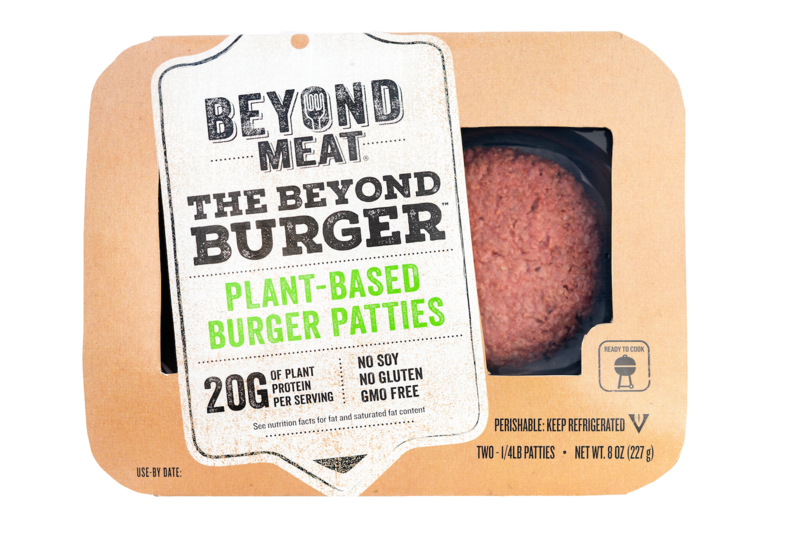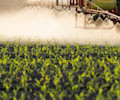
Dairy companies Danone and Chobani clashed this month after taking opposing views on whether to apply terms like ‘milk’ and ‘yoghurt’ to plant-based products such as soya and almond drinks. The story is part of a bigger and increasingly important debate about labelling in the growing market for alternative proteins. How should investors react?
What’s in a label?
The growing trend of millennials adopting flexitarian and meat-free diets signals a change in purchasing habits that is a shift from previous generations. Plant based milks now account for around 13% of the fluid milk market in the US, with sales of around $1.6 billion, while US retail sales of plant-based meats have risen by 23% over the past year.[1] Similarly, global sales of plant-based meat alternatives have grown on average 8% a year since 2010.
The flipside of this growth is the potential disruption it is causing traditional animal protein producers, especially the dairy industry, which is forecast to lose sales estimated at around $16 billion in the US by 2020.[2]
And so the industry is pushing back. Prompted by the dairy sector, the US Food and Drug Administration (FDA) recently opened an inquiry on using names of dairy foods for plant-based products.[3] This week, the National Milk Producers Federation is petitioning for plant-based products to be labelled with terms such as ‘imitation’.[4] The meat industry is vociferously lobbying at the state and federal level to restrict plant-based alternatives and cell-cultured meat from being labelled as ‘meat’.[5] Some bills being proposed are so restrictive, they would make it a crime to sell cell-cultured meat.**[6]**The most cited reason is purportedly to minimise consumer confusion about these products.
Except that surveys have shown that consumers are well aware that plant-based products don’t contain animal-based ingredients and understand key nutritional differences, a point made by Danone in its own public statement last week to the FDA.[7],[8] Restricting the use of words like meat and milk appear to be driven by a protectionist approach in response to disruptive innovation in the food sector and market shifts in Europe and the US.
Labelling must resist protectionism
To achieve a sustainable food system, it is vital that the market for alternative proteins is nurtured rather than stifled. As long as the labelling is accurate, legal and transparent, regulation should not be used to curb innovation and should instead, in our view, be focused on enabling a dietary transition through more product choice.
For investors, there are good reasons to be wary of any proposals to constrain the labelling of alternative proteins.
Alternative proteins offer major opportunities for investors, while enabling a reduction in the externalities associated with intensive animal-based food production. Multiple studies, from the ground-breaking EAT Lancet report to research by Oxford scientists and the World Resources Institute have emphasised the need for a dramatic reduction in meat and dairy consumption to stay within planetary boundaries. IPCC’s most recent report stated that “dietary shifts could contribute one-fifth of the mitigation needed to hold warming below 2°C.”[9]
The legal basis for similar ‘standards of identity’ claims are limited, at least in the US, as previous court rulings have been sceptical of claims regarding consumer confusion.[10]
There is considerable diversity in views even within food industry on this issue, as illustrated by the opposing views of Danone and Chobani. Meat companies including Tyson, Cargill and Maple Leaf that have made investments in plant-based and cell-culture technologies have stayed silent. And wider industry groups such as the Grocery Manufacturers Association have come out against labelling restrictions.
Investors have been clear: regulation should not be misused to stifle innovation, consumer choice and climate action. The issue highlights some interesting parallels with other carbon-intensive industries, including oil and gas. In these cases, investors have pushed for companies to engage positively on climate change policy rather than oppose the development of alternative solutions.[11]
Plus, it doesn’t actually work. In the EU, where the European Court of Justice has ruled that plant-based foods cannot be sold using terms such as milk, butter and cheese, brands have gotten around this by labelling themselves as “mylk” or “m*lk”.[12],[13]
An appetite for alternative protein disruption
Protein diversification is now an opportunity for companies to drive future growth, while reducing their exposure to risks linked to animal agriculture.[14] It’s why 74 investors with over $5.3 trillion in assets have signed on to our collaborative engagement with global food companies to diversify their protein portfolios. This year, the response and interest that we’ve seen from companies on this engagement, now in its third phase, has been unprecedented.
And with good reason: the food industry today is on the cusp of significant disruptive forces, driven by shifting consumer preferences and an explosion in food tech innovation. To remain successful, companies must seek to leverage these forces, rather than oppose them, to build a more sustainable and healthy food system.
Additional resource: Read the Good Food Institute’s public statement on how FDA might approach labelling issues to continue protecting consumers’ health and well-being
References
[1] https://www.globalmeatnews.com/Article/2018/09/13/Plant-based-products-on-the-rise
[3] https://www.regulations.gov/docket?D=FDA-2018-N-3522
[5] https://www.nytimes.com/2019/02/09/technology/meat-veggie-burgers-lab-produced.html
[6]https://app.leg.wa.gov/billsummary?BillNumber=1519&Year=2019&Initiative=false
[9] https://www.ipcc.ch/sr15/chapter/summary-for-policy-makers/
[11] http://senate.ucsd.edu/media/206150/lobby_spend_report__april.pdf
[12] https://www.ft.com/content/60dfdf34-5117-11e7-bfb8-997009366969?mhq5j=e1
[14]https://www.fairr.org/investor-engagements/sustainable-protein-supply-chains/
FAIRR insights are written by FAIRR team members and occasionally co-authored with guest contributors. The authors write in their individual capacity and do not necessarily represent the FAIRR view.











